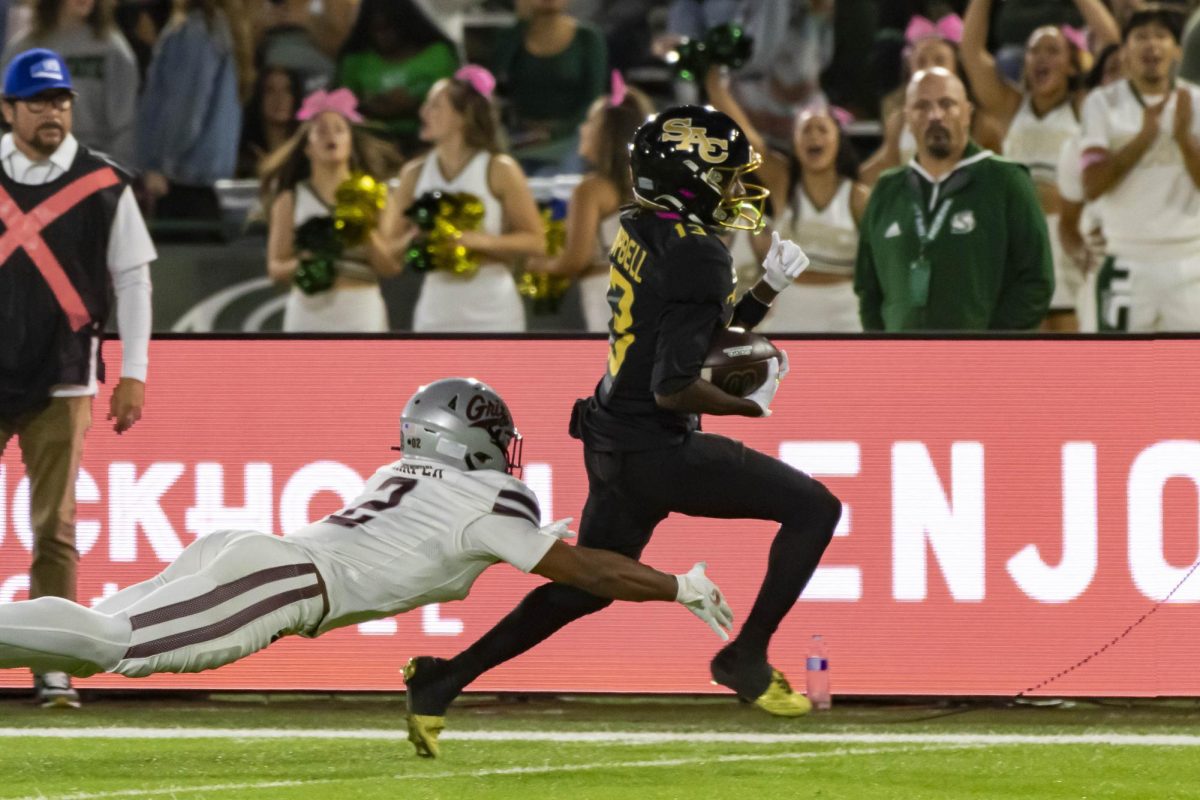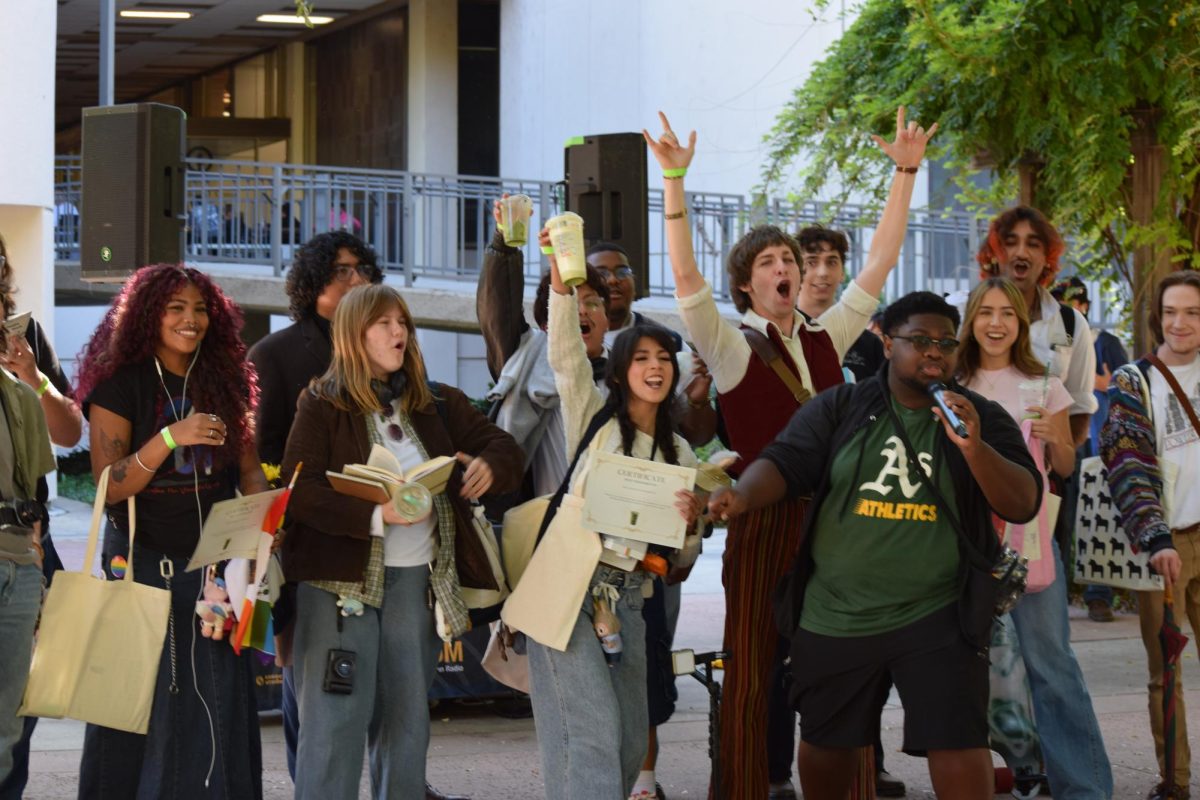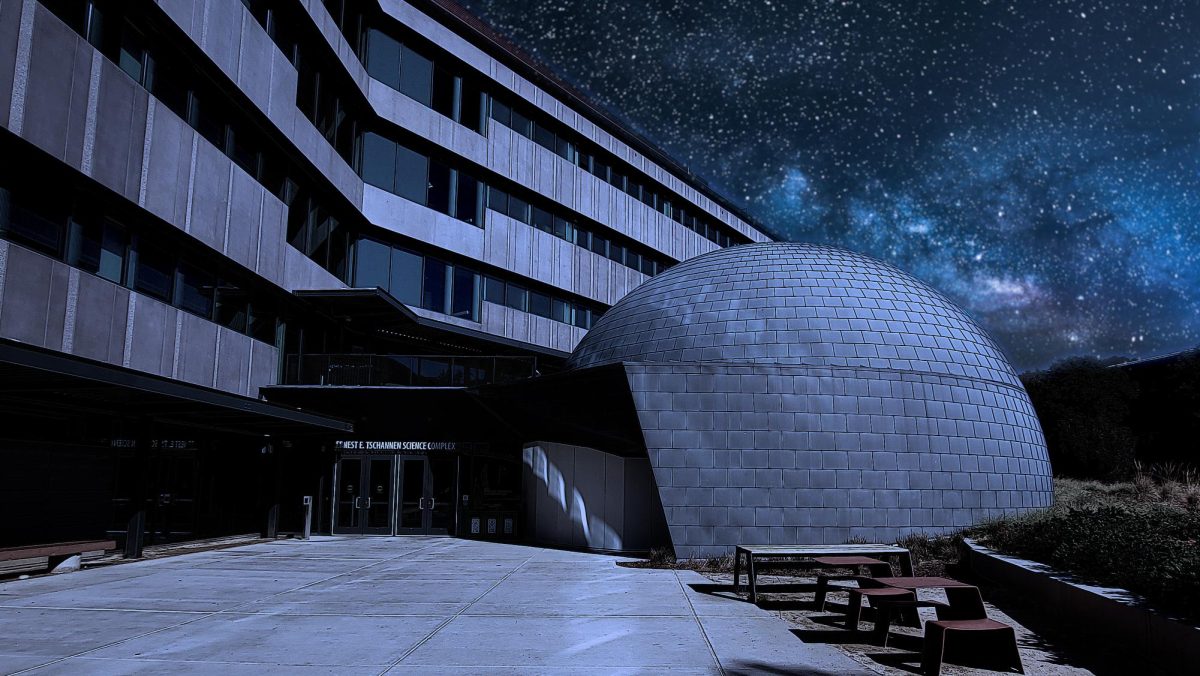Faculty counters Gerth’s schedule proposal
November 13, 2001
A plan that preserves scheduling flexibility and compels tighter oversight by college deans could solve Sacramento State?s overcrowding woes, according to a report by the Senate Work Group on Class Scheduling ? although some administrators don?t think it will work.
The plan, presented during a special session of the Faculty Senate last Thursday as President Donald Gerth and members of his administration looked on, calls for schedule enforcement and coordination of the class schedules by college deans for their respective schools. It mandates that 30 percent of classes be held outside of “prime time” and establishes a committee to annually review compliance and recommend future changes to schedule policy.
It does not dictate across-the-board Monday-Wednesday-Friday classes between
9:00 a.m. and 2:00 p.m., a feature of the plan Gerth announced Oct. 1 that has drawn criticism from students and some faculty. Communication Studies Chair Val Smith presented the proposal to the Faculty Senate as “a classic win-win situation.”
“This plan preserves flexibility for students while accomplishing the president?s goal to maximize facility use,” Smith said.
But Vice President of Academic Affairs Paul Noble disagreed. Noble, who was promoted from Associate Dean in the College of Natural Sciences and Mathematics in September, thinks that Gerth?s plan is the best way to improve facility usage and provide for an anticipated 5 to 10 percent enrollment increase next year.
“This plan continues the same policy we?ve had for six years,” Noble said of the faculty proposal. “It didn?t work then, it won?t work now. It?s simply continuing the same clunker we?ve had since Jolene Koester was here.”
As the Vice President of Academic Affairs in 1996, Koester backed the current format used by most departments on campus to schedule three-unit lecture classes on either Monday-Wednesday or Tuesday-Thursday.
Noble was referring to the fact only 8 percent of enrollment comes from Friday classes. Observers in the administration have noted that under the current system, department chairs have the option to schedule Friday courses but generally do not. And others point out that the few Friday classes that are offered usually aren?t must-have general education or degree core classes.
Smith acknowledged the plan he proposed is an amended version of a study by the Council for University Planning from earlier this year that was largely ignored, but that this time “subtle incentives” will assure that Sac State offers more sections on Friday as three-hour classes or as part of a Monday-Wednesday-Friday format.
“It?s really up to the deans under this plan,” Smith said. “A dean might look at his or her school and say, ?Hey, Monday-Wednesday, Tuesday-Thursday won?t work for us,? and go ahead and schedule Monday-Wednesday-Friday classes. Others may schedule classes both ways.”
However, some faculty members see problems with giving choice to faculty or administrators. Junior faculty?part time lecturers and professors without tenure?will probably have to teach the majority of the classes outside prime time, according to History Department Chairman Henry Chambers.
“Even if the deans have a lock grip on the chair?s throat, junior faculty will be stuck with the rear end of the mule,” he said.
Yet, while faculty, deans and department chairs may have skirted scheduling rules in past years, Smith said that everyone recognizes the need to manage facility use has become critical.
“I don?t think enforcing the rules is going to be that much of a problem,” he said. “I think I can go to the faculty and say, ?We need full time and part time people to schedule outside of prime time,” and they?ll do it. We can make this policy work.”
“This can?t be autopiloted,” Buckley told the Faculty Senate. “Enforcement will be key to making this work.”
The Senate Work Group on Class Scheduling hammered out the plan after meeting on Oct. 30 and Nov. 6. According to Faculty Senate Chairman Bob Buckley, he and the committee of seven department chairs, two professors and two students met a total of four hours and spent “a considerable amount of time” in informal discussions, emailing each other, and analyzing results of a survey sent to all the department chairs.
Gerth delayed implementing his Oct. 1 order after students and faculty protested their lack of input in his decision.
A memo from Associate Vice President for Academic Affairs Ric Brown instructed college deans and department chairs to delay finalizing their fall 2002 schedules pending his review of alternate formats by Associated Students, Inc. and the Senate. ASI submitted their proposals Nov. 6. The Senate?s deadline is Nov. 16.
Smith believes that the committee has not worked in vain and that Gerth is sincerely interested considering alternatives. He even thinks that the administration may have even foreseen the controversy the Monday-Wednesday-Friday plan would generate.
“The faculty and the president are not at odds of the goal of the policy. Everybody agrees that we are out of prime time space,” he said. “I don?t think the president wants to cut the baby in half. But I do think he pulled out the sword to get everyone?s attention.”
The Faculty Senate will meet to vote on the Senate Work Group?s plan this Thursday in Mendocino Hall 1005 at 3:00 p.m.





























































































































